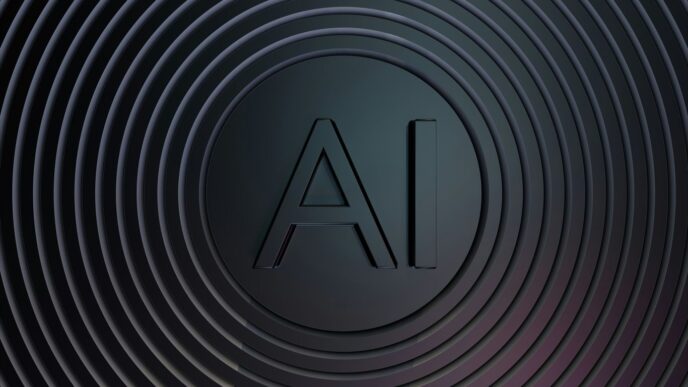Creatine, a well-known supplement renowned for its performance-enhancing properties, has garnered attention for its potential role in fat loss. In this article, we will explore whether creatine can truly work as a fat burner and aid individuals in their pursuit of a leaner physique.
DOES CREATINE AID IN WEIGHT LOSS?
While creatine is not directly associated with weight loss, it can indirectly contribute to the process. The primary effect of creatine supplementation is the promotion of lean muscle mass development rather than direct fat burning. However, the increase in lean muscle mass can have positive implications for weight loss efforts.
IMPACT ON METABOLISM:
Muscle tissue plays a significant role in metabolism, as it burns more calories than fat tissue even at rest. By incorporating creatine supplements into a well-rounded exercise routine, individuals may experience an increase in muscle mass. This elevated muscle mass can lead to a higher metabolic rate, making it easier to create a calorie deficit and facilitate weight loss.
ENHANCING EXERCISE PERFORMANCE:
One of the indirect ways creatine may aid in weight loss is by improving exercise performance. Scientific studies have shown that creatine supplementation can enhance strength, power, and endurance during high-intensity workouts. By improving performance and enabling individuals to push harder during exercise, creatine can contribute to increased calorie expenditure and potentially support weight loss efforts.
RETAINING MUSCLE MASS:
Preserving muscle mass is crucial during weight loss, as it contributes to physical strength and helps maintain a healthy metabolic rate. Creatine supplementation, combined with resistance training, can help minimize the loss of muscle mass while reducing body fat. By preventing excessive muscle breakdown, creatine can assist in achieving a leaner body composition.
While creatine itself does not directly burn fat, it can play a supporting role in weight loss. By promoting the development of lean muscle mass, enhancing exercise performance, and aiding in muscle retention during weight loss, creatine supplementation can indirectly contribute to a more effective and efficient weight loss journey. However, it is important to note that individual responses may vary, and consultation with a healthcare professional or registered dietitian is recommended before incorporating creatine into a weight loss regimen.
DETERMINING THE OPTIMAL DOSAGE FOR WEIGHT LOSS:
When using creatine for weight loss purposes, finding the appropriate dosage is essential to maximize benefits while minimizing potential risks. For most individuals, a daily dosage of 3-5 grams of creatine monohydrate is considered effective and safe. Unlike a loading phase, which involves higher initial doses, a maintenance dosage of 3-5 grams per day is sufficient for weight loss purposes. It is advisable to consume creatine with water or a carbohydrate-containing beverage to enhance absorption.
SAFETY CONSIDERATIONS AND SIDE EFFECTS:
While creatine is generally safe for consumption, it is important to be aware of potential side effects and exercise caution when using this supplement. Temporary weight gain, primarily due to increased muscle water content, is a common occurrence with creatine supplementation. However, this weight gain is not primarily attributed to increased fat mass but rather improved hydration and enhanced muscle volume.
Gastrointestinal discomfort, such as bloating or stomach cramps, may occur in some individuals. Starting with a lower dosage and gradually increasing it can minimize these side effects. It is also recommended to take creatine with meals or divide the daily dose into smaller portions throughout the day to reduce gastrointestinal distress.
Individuals with pre-existing kidney conditions or impaired kidney function should exercise caution and consult with a healthcare professional before using creatine supplements. Regular monitoring of kidney function through routine medical check-ups is advisable for individuals using creatine long-term.
Proper hydration is crucial when using creatine supplements, as they have the potential to cause water retention. It is important to maintain adequate hydration by drinking sufficient water throughout the day to prevent dehydration and support overall health.
When considering creatine supplementation, it is essential to choose high-quality products from reputable manufacturers. Look for supplements that have undergone third-party testing to ensure purity, potency, and absence of contaminants. Consulting with a healthcare professional or registered dietitian can help determine the appropriate dosage and assess whether creatine supplementation aligns with individual health goals and dietary needs.
CAN CREATINE REDUCE BELLY FAT?
While creatine supplements have been extensively studied for their effects on athletic performance and muscle growth, their direct impact on reducing belly fat remains uncertain. Creatine is commonly used by individuals aiming to gain weight and increase muscle mass, as it enhances strength and power during exercise.
To effectively reduce belly fat, a comprehensive approach is necessary, including regular exercise, a healthy diet, and a calorie deficit. While creatine can indirectly contribute to weight loss by supporting muscle tissue, which naturally burns more calories than fat tissue, it is not a standalone solution for directly burning body fat. Incorporating aerobic exercises and strength training, such as lifting weights, into the fitness routine is crucial for targeting and reducing belly fat.
CONCLUSION:
While creatine supplementation may have various health benefits and aid in weight gain and muscle growth, its direct role in reducing belly fat is limited. Oral creatine supplements, such as creatine ethyl ester, can support muscle performance and increase creatine stores but do not directly burn body fat. A holistic approach that includes regular exercise, a balanced and nutritious diet, and creating a calorie deficit is essential for effectively reducing belly fat. Incorporating weightlifting and other forms of exercise can promote fat loss and improve body composition. Remember, a healthy and sustainable lifestyle is key to long-term weight loss and overall well-being.
In conclusion, while creatine supplementation can indirectly support weight loss efforts by promoting lean muscle mass, enhancing exercise performance, and aiding in muscle retention, its direct impact on fat burning and reducing belly fat is limited. Creatine should be viewed as a complementary strategy to a well-rounded approach that includes proper nutrition, regular exercise, and a calorie deficit. As with any dietary supplement, it is crucial to consult with a healthcare professional before incorporating creatine into a weight loss regimen to ensure its suitability and safety for individual needs.
Interested in adding Creatine to your regiment? Try the World’s First Creatine Gummies today!
Bear Balanced® | World’s First Creatine Gummies®: https://www.bearbalanced.com/blogs/creatine/does-creatine-build-muscle















